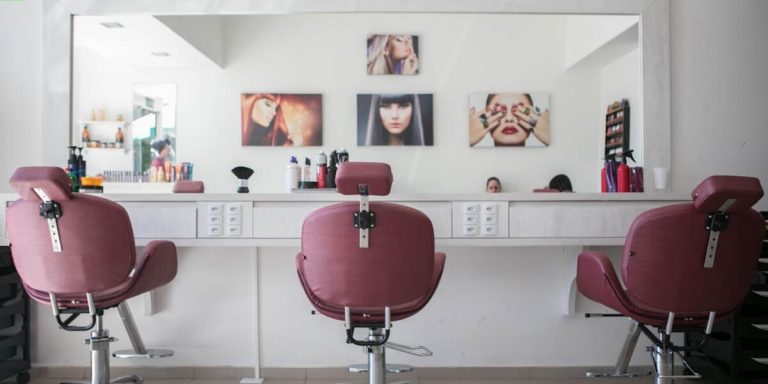What Health Conditions Cause Greasy Hair? A Detailed Explanation
Greasy hair can be a cosmetic issue but often it’s indicative of underlying health conditions. It is important to understand “what health conditions cause greasy hair” for effective management and treatment. This post aims at providing you with insight into the potential medical causes behind this discomforting condition.
Apart from external factors such as pollution or excessive use of chemical products, certain internal bodily disorders also contribute to oily texture in your tresses. In fact, understanding these root causes is vital because treating them could mean bidding goodbye to not only greasy locks but improving overall wellness too.
Did you know?
Contrary to popular belief, excessive greasy hair isn’t just a result of poor hygiene. Hormonal imbalances or conditions like Polycystic Ovarian Syndrome (PCOS) can also lead to an overproduction of sebum resulting in oilier hair.
Understanding the Link Between Health Conditions and Greasy Hair
Greasy hair is not just a result of improper or infrequent shampooing. It can also be an indicator of certain underlying health conditions that might go unnoticed otherwise. The body’s internal turmoil often manifests itself through external symptoms like changes in skin and scalp condition, one being excess oil production which leads to greasy hair.
To understand the link between greasy hair and health conditions, it’s crucial to first comprehend our scalp’s natural processes. Sebaceous glands located on our scalps produce sebum – an oily substance responsible for keeping your hair hydrated and healthy. However, various factors such as diet, hormonal imbalances or varying health issues can overstimulate these glands leading to excessive secretion of sebum thereby causing greasy locks.
For instance, polycystic ovarian syndrome (PCOS), a common disorder among women marked by hormonal imbalance, often results in increased grease levels due to overactive sebaceous glands caused by higher-than-normal testosterone levels. Similarly metabolic complications linked with obesity may accelerate oil production too.
Stress-induced illnesses can sometimes trigger responses from the body, leading to aesthetic challenges like excessively oily hair. To address these issues effectively, it’s important to understand the connection between stress and its symptoms. By targeting both root causes and their symptomatic manifestations, you can achieve comprehensive well-being that transcends surface-level appearances, aiming for profound, holistic solutions that enhance overall quality of life. Maintaining good hair hygiene practices year-round from 2023 onward is especially crucial in this process.
Common Medical Issues Associated with Excess Scalp Oil Production
Greasy hair can be a nuisance, but it may also hint at underlying health conditions. It’s crucial to understand what health conditions cause greasy hair in order to take appropriate measures.
One common contributor is hormonal imbalances. Changes or fluctuations in hormone levels can increase the production of sebum – an oily substance secreted by your scalp’s oil glands. This often happens during puberty, pregnancy and menopause or as a side effect of contraceptive pills.
Then we have certain skin disorders like Seborrheic Dermatitis and Scalp Psoriasis that lead to scalp inflammation along with excessive grease production. People suffering from these conditions often grapple not only with oily strands but other symptoms such as itchiness, flaking and redness too.
Next on the list is Hyperhidrosis – essentially excessive sweating which includes your scalp too! The excess moisture might make your mane appear more greasy than usual.
A lesser-known cause could be Polycystic Ovary Syndrome (PCOS). One symptom among many others for PCOS sufferers is excessively oily skin and this extends into an overly lubricated scalp resulting in limp lacklustre locks!
Hormonal Imbalances: How They Impact Your Hair’s Sebum Levels
Hormonal imbalances are a significant factor that may be behind your struggle with greasy hair. They directly affect the sebum levels in our bodies, which subsequently determines how oily or dry our scalp and hair become. But first, what exactly is sebum?
Simply stated, it’s an oil-like substance produced by our body’s sebaceous glands to preserve skin moisture and keep both the skin and hair healthy.
Now let’s delve into hormonal imbalance – something we seldom associate with what health conditions cause greasy hair but plays a crucial role nonetheless. Your hormones play part in regulating just about every function of your body including managing the production of sebum. Changes in hormone levels can disrupt this balance leading to excessive sebum production resulting in greasy-looking locks.
Investigating Dietary Factors That Contribute to Oily Hair Concerns
Greasy hair can often leave individuals feeling frustrated as the overproduction of oil known as sebum is not typically within our control. This common condition, though seemingly insignificant, reveals much about an individual’s health status and lifestyle habits – particularly their dietary intake.
In order to fully grasp the connection between diet and oily hair concerns, it’s crucial to understand how particular foods impact your body’s production of grease-causing hormones such as DHT (Dihydrotestosterone). An excessive intake of fatty foods or those high in sugar could potentially trigger overactive oil glands in your scalp. The resulting surplus oils coat your strands quicker than they are washed away thus causing that undesired greasy appearance.
Further complicating this issue are certain lifestyle habits including frequent consumption of alcohol which dehydrates one’s system then results in compensatory increased sebaceous gland activity on your scalp; leading noticeably towards more oily hair conditions. Confirming these intertwined relationships therefore gives us a better insight into managing greasier locks simply through making careful considerations with what we choose to eat and drink every day!
The Role of Fatty Foods and Diet in Scalp Oil Secretion
We’ve often heard the saying, “You are what you eat”. This idiom holds true especially when it comes to hair health. The role diet plays in determining the condition of our scalp cannot be underrated.
In fact, there’s a clear connection between consumption of fatty foods and increased oil secretion on your scalp.
Let’s delve into understanding this link further:
1) Excessive Sebum Production: Consumption of greasy food can trigger an overdrive in sebum production; sebaceous glands under your skin produce an oily substance known as sebum which is responsible for keeping both skin and hair moisturized. However, excessive production could lead to unusually greasy or oily hair.
4) High Sugar Diets May Contribute To Oily Hair: An excess amount sugar can make those oil secreting glands go haywire triggering higher-than-normal output making strands appear unwashed even soon after shampooing them!
Nutritional Deficiencies and Their Effect on Hair’s Natural Lubrication
Nutritional deficiencies can significantly impact the health of your hair, often leading to greasy hair problems. This condition is usually a sign that your body lacks specific vital nutrients required for maintaining healthy and balanced hair. Let’s explore what health conditions cause greasy hair.
A deficiency in B-vitamins, notably Vitamin B2 (Riboflavin) and B6 (Pyridoxine), may result in an overproduction of sebum, causing oily or greasy scalp issues. These essential vitamins are critical for overall skin health as they regulate oil production on the scalp surface.
The lack of Omega-3 fatty acids also contributes to excessively oily locks. As crucial elements within a healthy diet, these unsaturated fats play an instrumental role in regulating sebum production levels; low intake could trigger higher than necessary sebum generation leading to slick-feeling strands.
An inadequate supply of minerals like Zinc aggravates cells’ functionality at a basic level too—affecting both how much oil your glands produce and the manner it gets distributed along with each strand. It leads directly into what we perceive externally as unhealthy shine versus glossiness indicative of richly nourished tresses.
Unveiling Hygiene Practices for Managing Health-Induced Greasy Hair
Greasy hair can be a direct manifestation of certain underlying health conditions. It’s essential to understand that oil production is an innate process in our body, and due care should be given not to disrupt this balance unintentionally. However, particular physiological issues like seborrheic dermatitis or hormonal imbalances could propel the scalp into accelerated oil generation, resulting in greasy hair.
Subsequently good hygiene practices for those dealing with health-induced greasy hair come into play. Adaptation of proper washing techniques becomes crucial here as over washing might trigger even more oil secretion while under-washing may cause bacterial build-up leading to various follicular problems. Opting for mild shampoos which do not strip off natural oils excessively should also be considered part of your daily regimen.
In nutritional terms as well considering balanced diets rich in Vitamin B6 and beneficial fats would aid efficient regulation of sebum levels inhibiting excessive slickness on the surface level. Emphasis must also lie upon regularly scheduled doctor visits enabling further understanding towards finding individualistic solutions suiting one’s specific needs.
Therefore maintaining healthy mane amongst such predicaments revolves around awareness about personal scalp condition followed by adoption of appropriate hygienic practices resonating along medical guidelines advised particularly for you.
Effective Cleansing Routines Tailored for Scalp Conditions Leading to Oiliness
As the core concern is “what health conditions cause greasy hair”, it’s crucial to design a cleansing routine that would effectively handle this. Greasy or oily hair isn’t just about lackluster looks, but also an indication of underlying scalp and health issues triggering excessive oil secretion.
One effective method includes washing your hair every alternate day with a mild shampoo specifically designed for oily scalps. Regularly cleaning can help in tackling excess sebum production while maintain essential natural oils on your head.
Another trick involves using lukewarm water during washes instead of hot water because the latter often stimulates the glands that produce sebum giving you more grease than glossiness. Follow up with cold rinse post-shampoo to close pores which reduces further oil secretion.
Brushing has its own science too when dealing with greasy hairs! Always go easy as rigorous combing activates oil producing glands leaving you all slick and shiny again!
Add working out regularly in your daily chores: Physical exercises encourage better blood circulation throughout body including ourscalp encouraging healthier follicle function leading lesser grease generation over time.
Last but not least remember keep intake junk food minimum since high fat diets are proven promoters increased facial bodily secretions affecting overall skin condition hence there’s good chance they might stimulating those stubborn little sebaceous glands atop head too!
Selecting the Right Shampoo: A Revelation for Treating Medically Related Greasy Strands
Choosing the right shampoo is an essential step in managing greasy hair caused by certain health conditions. Often, health issues like hormonal imbalances or scalp infections can exacerbate sebum production leading to oilier strands than usual. Understanding what health conditions cause greasy hair and tailoring your care routine accordingly can significantly improve not just your appearance but also boost your confidence.
When you delve into the world of shampoos, it’s easy to be overwhelmed with options available on store shelves; ranging from clarifying types that work hard at removing excess oils while moisturizing variants aim to replenish lost nourishment due to harsh environmental factors. The trick here lies in understanding which variant will suit medical-induced oily scalp best without compromising overall strand vitality.
For those grappling with medically induced greasiness, a gentle yet effective formula should be pursued – one diligently designed for sensitive scalps struggling under various ailments’ weight.
Conclusion
In conclusion, identifying what health conditions cause greasy hair is a vital step towards better understanding your overall hair health. It can lead to more effective treatment strategies and lifestyle changes that allow you to take decisive action for improved scalp wellness. While it may seem like a superficial issue at first glance, the state of our tresses often reflects hidden internal issues we need immediate attention.
Keep in mind this wealth of information doesn’t end here; there’s much more to discover about all things related to ‘Hair Health’. Don’t hesitate! Dive deeper into other resources on our website where you will find an array of informative content aimed at empowering you with knowledge about maintaining proper hair hygiene and achieving the luscious locks everyone dreams off.
Your journey towards healthier strands starts here!







